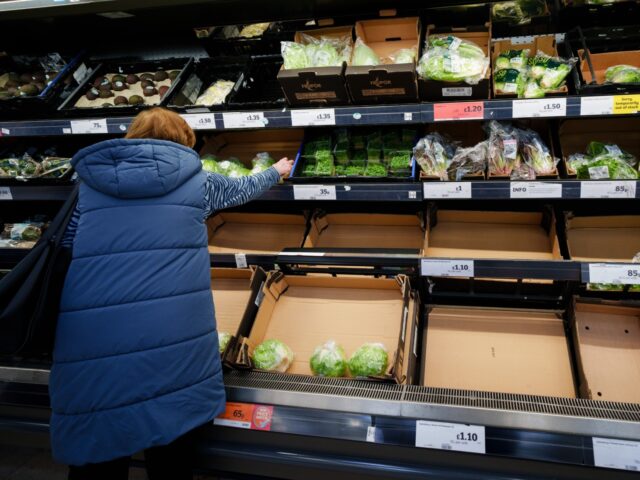UK inflation rose again in February to over 10 per cent amid rising food prices, the country’s office for national statistics has confirmed.
Inflation in the UK is once again on the rise, with it reportedly breaching 10 per cent again in February over the same time last year according to data published by the country’s office for national statistics. The revelation that inflation was running higher than predicted prompted the Bank of England to put baseline interest rates up yet again, a move they believe will cool inflation by constraining new borrowing and reducing the supply of discretionary income.
One of the key factors driving the increase is reportedly the price of food and non-alcoholic beverages, which saw a rise in price closer to 20 per cent over February last year.
According to the ONS report, the 12-month Consumer Prices Index hit 10.4 per cent in February amid the rising price of food, which is estimated to have risen by around 2 per cent since January this year.
Overall, the price of food and non-alcoholic drinks was 18.2 per cent higher last month than they were in February 2022.
Such a spike is in turn explained by the agency as being down to an ongoing vegetable shortage in the country, with bad weather in Southern Europe and Africa combined with sky-high energy prices strangling supply across Europe.
By subscribing, you agree to our terms of use & privacy policy. You will receive email marketing messages from Breitbart News Network to the email you provide. You may unsubscribe at any time.
“These price movements resulted in an annual rate of 18.0% for vegetables in the year to February 2023, the highest rate since February 2009,” the government organisation’s report explains.
The rising price of food in the UK could likely not come at a worse time for many in the UK, with large numbers of people left struggling as a result of extremely high energy prices over the last number of months.
Britain’s Green Agenda-obsessed Conservative Party has not exactly helped matters either, with previous reports partly blaming the lack of vegetables on the fact that UK farmers simply have not been putting crops in the ground due to it being too expensive to do so.
Instead of fighting tooth and nail to help solve this imbalance though, the Tories have instead been campaigning for many farmers to grow even less food and instead focus on fighting climate change.
Despite fears about Western food security in the face of the Ukraine War, the government has pushed for many farms throughout the country to stop growing food and instead fill their land with solar panels to generate renewable energy.
Politicians have also committed themselves to pushing so-called “habitat management” in the country, paying farmers to look after local wildlife and flora. While laudable in of itself, these policies can tend to come at the expense of food production.
Scotland’s hardline progressive government has taken such measures even further, with a senior green party minister in the country outright ignoring warnings from farmers last year that its environmentalist policy combined with the war in Ukraine could result in food supply shortages.
Describing the country as facing a “nature emergency”, green bigwig Lorna Slater waved away suggestions that farmers could be allowed to grow more food to offset coming supply shortages, which now appear to have materialised.

COMMENTS
Please let us know if you're having issues with commenting.